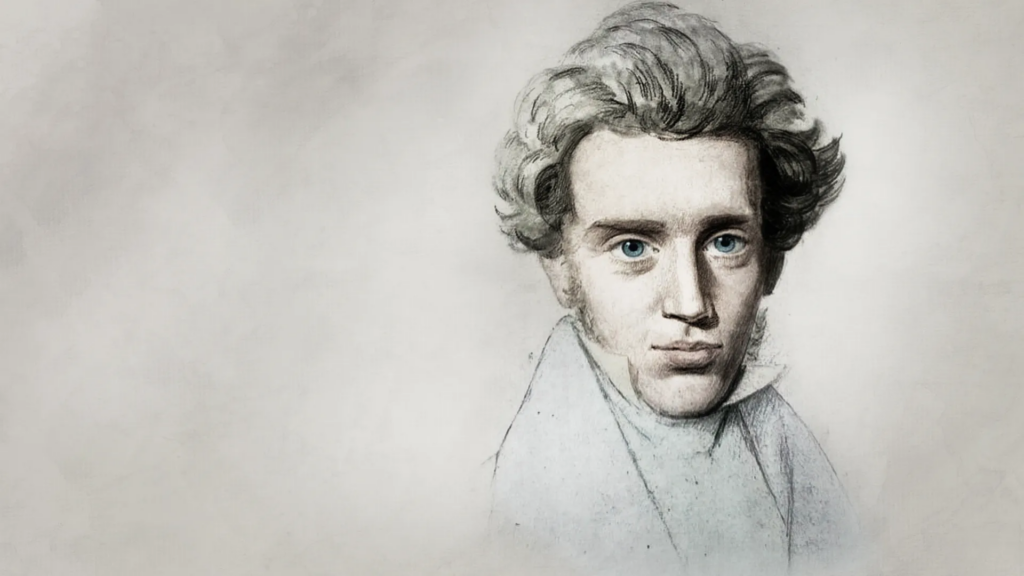Love as a Human Condition
The eyes are the window of the soul

It was strange, but the truth is that until I was seventeen I lived among these beings, and I was more foreign to them than to people I had never seen. It never occurred to me to think that they loved and had desires and feelings like me. Our garden, our forests, our fields, which we had known for so long, suddenly became new and wonderful. Not in vain did Sergei Mikhailovich say that there is only one undoubted happiness in the world: living for others. This idea seemed strange to me then because I didn’t understand it. However, it infiltrated my heart without reasoning. Sergei Mikhailovich discovered a whole world of joys for me in the present, without changing my existence at all, without adding more than his person to each emotion. All that had lived in silence around me since my childhood, and it had been enough for him to come for it to resonate and pour into my soul, filling it with happiness. (Tolstoy, L).
Is it possible to change the environment without it changing? Living is affected, without a doubt, by knowledge, by feelings, by the environment, and by the emotions that add nuances, tones, colors, intensity, and special vigor. Existence shapes one’s existence to the rhythm of its unfolding in everyday life and the daily hustle and bustle. While living, life expands with additions and reliefs, it becomes denser with the experiences, with the relationships, with the sorrows, and with the joys that being and coexisting bring over time. Intelligence, for its part, tries to build an argument that orders it and grants unity, however, the small distance between the protagonist – who acts – and his story – made up of what he has experienced – makes it difficult to take deep responsibility for the value and meaning of what has been done up to that moment.
Living is expansion, relationships, exchanges and movement that when associated – not at random but in the way that suits the person – give rise to multiple, varied connections and combinations that make up the experiences, learning and experiences that leave a particular seal to life itself, perhaps that is why narrating it becomes interesting, attractive and suggestive. To anyone else? Certainly not. The narrative itself is revealed, discovered in its splendor, to someone who, upon receiving it, welcomes it and knows how to decode what is peculiar and unprecedented in it; also to someone who is willing to value it and, why not, to increase it.
When you ask someone, “Who are you?”, the answer outlines general data, those that help the casual interlocutor identify you and distinguish you from others. If you still insist on the question, then facts that are considered “public” – the resume – are narrated and that give notice of your main personal, social and professional milestones and achievements. When faced with the same question, when there is a friendship or sentimental relationship, the answer contains not only facts, but thoughts, desires, affections, illusions and even reflections on what is believed and expected. It is, without a doubt, one more step. It is overcoming intimacy.
Opening the door of intimacy to another is not a trivial event, quite the opposite. Showing the core, the essence of what explicitly characterizes me is a voluntary and consented decision – I do it because I want to – on condition that that someone has the best disposition of respect and appreciation of me – being-like-this-and-not-another- way, which at the same time differentiates me and makes me unique. At the same time, let him have the certainty that from the condition of being his personal being, he can increase my intimacy by offering me his with equal intensity. From this perspective, bringing two subjectivities together – not comparing them – means an exchange of views on what is radically unique to each one. In this act of contemplation, the word falls silent, the heart lights up and life does not find peace until it merges with another existence, since it finds no other way to ceaselessly possess the person in his unique and unrepeatable condition. Only love is the driving force that moves and directs the lover towards the vital possession of the intimacy of the loved person.
Among the many virtualities that love has, ‘being for another’ or ‘being the center of attention’ is one that has the power to confirm existence. The shine in her eyes when looking at her, the smile that appears on her face in the presence of the loved one… are gestures that only ratify her centrality for her lover. In a certain way, knowing that one is loved is an escape from anonymity, not that one is deprived of interpersonal relationships, but that one’s own name, the affectionate nickname, does not become a ‘formally social’ concept, rather it genuinely contains and embodies intimacy, inside world. Even more, the loved one does not see himself in the position of making an effort to present merits, he simply shows himself as he is: love does not reward medals achieved, it enjoys the contemplation and care of the person he loves.
Life, permeated by love, is completed and illuminated and with those notes it opens to a future with hope. One’s own life is not perceived as a kind of journey in the dark, similar to a train that circulates through long tunnels, where the passenger does not perceive the sun’s rays, the pattering of the rain or the fun of children… the paleness, monotony are companions of that displacement.
On the other hand, a heart in love, comforted and confirmed by knowing that it is radically accepted and possessed from its condition of being a personal being, vibrates and expands plethoric. So, when it wants to “take a journey from the inside” outward, reconfigured by love, it is ‘placed’ in the pupil of the eyes, on the tip of the tongue and in the palm of the hands. Then, the gaze is refined to look at things in their dimension of beautiful, true, good and simple. If one ‘appropriates’ things with one’s gaze, language will try to translate them with words that encourage, bring together and refer to reality itself. Finally, the heart uses the hands to welcome, embrace, support and help.
When the eyes of the lover and the beloved rest on something, they not only talk about what they have seen; They exchange -from their singularity- ‘originates’ in relation to the same good: reality. The gazes, iridescent by love, ‘recreate’ it, they do not change it, discovering in it the flashes of mystery that imprisons and the peaks that please the spirit.
The most beautiful looks are those that project the highest of the human being: his intelligence and his will. They are the ones that transmit understanding and love with respect to other people and the universe: they are the intelligent and loving looks that say with their eyes: it’s good that you exist! “You are unique and unrepeatable!” It is the look of a mother, of a lover, of God. (G. Castillo)
The eyes are the window of the soul, says popular wisdom; physics replies saying: “only if the window is clean”. Even philosophy insists: “the luminosity of the soul removes the fog from the glass”…but only love distinguishes the shine in the eyes.
Related

The Religious Writer with a Fighting Heart
Francisco Bobadilla
24 April, 2025
4 min

Francis. The Human and Religious Imprint of a Papacy
Isabel Orellana
24 April, 2025
5 min

Cardinal Felipe Arizmendi: With the Risen Christ, There Is Hope
Felipe Arizmendi
24 April, 2025
6 min

You Didn’t Give Up
Exaudi Staff
23 April, 2025
2 min
 (EN)
(EN)
 (ES)
(ES)
 (IT)
(IT)

